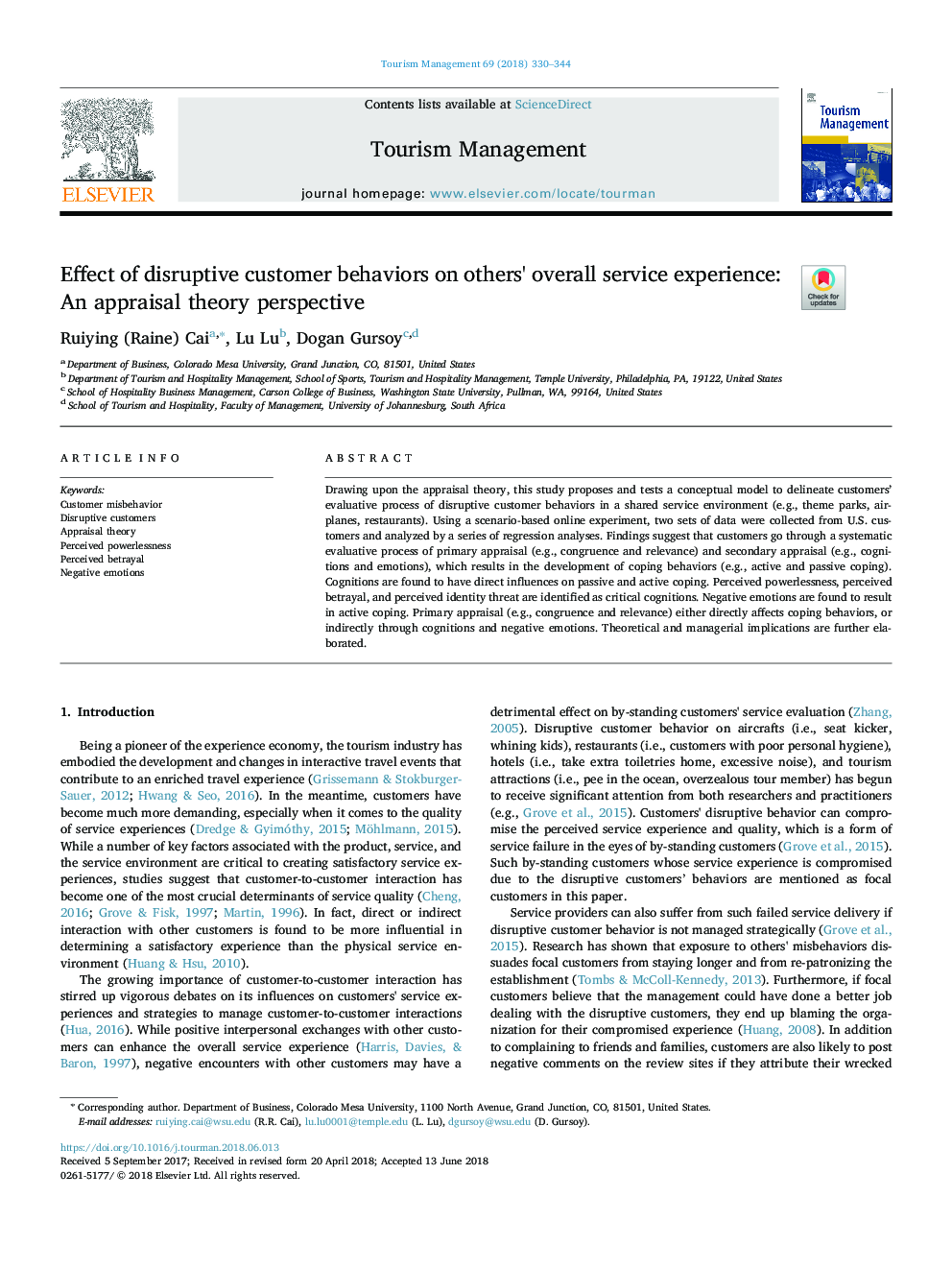| Article ID | Journal | Published Year | Pages | File Type |
|---|---|---|---|---|
| 7420734 | Tourism Management | 2018 | 15 Pages |
Abstract
Drawing upon the appraisal theory, this study proposes and tests a conceptual model to delineate customers' evaluative process of disruptive customer behaviors in a shared service environment (e.g., theme parks, airplanes, restaurants). Using a scenario-based online experiment, two sets of data were collected from U.S. customers and analyzed by a series of regression analyses. Findings suggest that customers go through a systematic evaluative process of primary appraisal (e.g., congruence and relevance) and secondary appraisal (e.g., cognitions and emotions), which results in the development of coping behaviors (e.g., active and passive coping). Cognitions are found to have direct influences on passive and active coping. Perceived powerlessness, perceived betrayal, and perceived identity threat are identified as critical cognitions. Negative emotions are found to result in active coping. Primary appraisal (e.g., congruence and relevance) either directly affects coping behaviors, or indirectly through cognitions and negative emotions. Theoretical and managerial implications are further elaborated.
Keywords
Related Topics
Social Sciences and Humanities
Business, Management and Accounting
Strategy and Management
Authors
Ruiying (Raine) Cai, Lu Lu, Dogan Gursoy,
